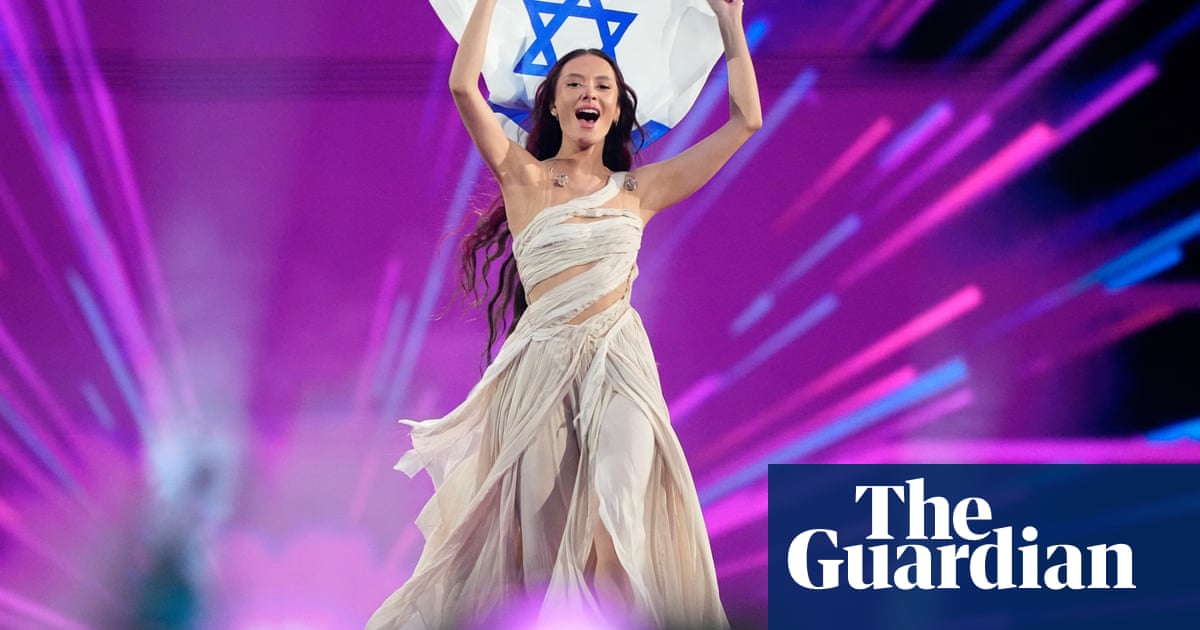Ireland’s public broadcaster has asked the European Broadcasting Union (EBU) for a discussion about Israel’s inclusion in theEurovisionsong contest, as 72 former contestants called for the Israeli broadcaster Kan to be banned from next week’s event in the Swiss city of Basel.
The director general of Ireland’s RTÉ, Kevin Bakhurst, said in a statement on Wednesday that he was “appalled by the ongoing events in the Middle East and by the horrific impact on civilians in Gaza, and the fate of Israeli hostages”.
By asking for a discussion over Israel’s inclusion in Eurovision, Bakhurst said, he was mindful “of the need to maintain RTÉ’s objectivity in covering the war in Gaza”, as well as “severe political pressure” on Israel’s public service broadcaster Kan from the Israeli government.
Israel has been part of the world’s largest live music event since 1973, when it became the first participant not to be geographically located inEurope.
There were calls for Israel’s exclusion at last year’s event in the Swedish city of Malmö, and the Irish contestant Bambie Thug was asked by the EBU to remove Ogham script from their face and legs spelling out the words “Ceasefire” and “Freedom for Palestine”.
At this year’s contest, running from 13 to 17 May, Israel will be represented by Yuval Raphael, a 24-year-old singer who survived the Hamas massacre at the Nova music festival near the Gaza border on 7 October 2023. Hamas’s attacks on Israel that day killed 1,200 people and led to the ongoing Israeli offensive in Gaza, which has so far killed more than 52,000 people.
In an open letter to the EBU this week, 72 musicians, lyricists and performers associated with the contest called for Kan’s exclusion, alleging the broadcaster was “complicit in Israel’s genocide against the Palestinians in Gaza and the decades-long regime of apartheid and military occupation against the entire Palestinian people”.
A document linked to in the letter cites several incidents of Kan journalists allegedly endorsing military action or boasting about the destruction of Gaza as evidence of the broadcaster’s complicity.
The performers said Kan’s inclusion would “allow music to be used as a tool to whitewash crimes against humanity” and would amount to double standards since the EBU has banned Russia from the event since 2022 over its invasion of Ukraine.
Signatories included former Eurovision winners such as Portugal’s Salvador Sobral and Fernando Tordo and Ireland’s Charlie McGettigan, as well as the British singer Mae Muller, France’s La Zarra, and last year’s competitors Ásdís of Iceland and Gåte of Norway.
Six European foreign ministers – from Ireland, Iceland, Luxembourg, Norway, Slovenia and Spain – made a joint statement on Wednesday expressed their “grave concern about the reported Israeli plans to expand its military operations in Gaza and to establish a prolonged Israeli presence in the strip”.
The EBU has previously said none of its members had publicly opposed Kan’s participation in Eurovision.
A spokesperson said in a subsequent statement: “We understand the concerns and deeply held views around the current conflict in the Middle East. The EBU is not immune to global events but, together with our members, it is our role to ensure the contest remains, at its heart, a universal event that promotes connections, diversity and inclusion through music.
“We all aspire to keep the Eurovision song contest positive and inclusive and aspire to show the world as it could be, rather than how it necessarily is.”
